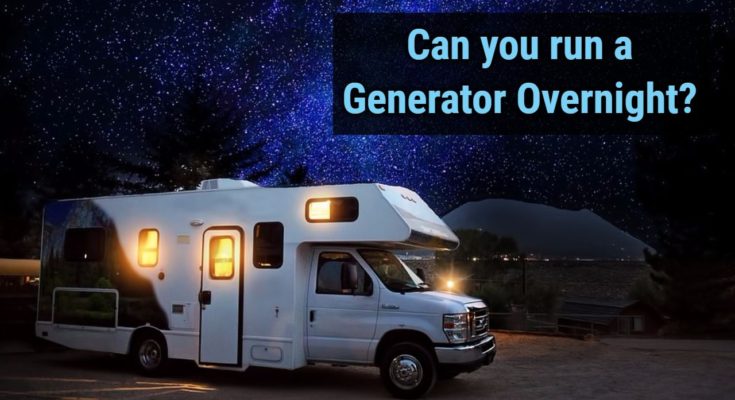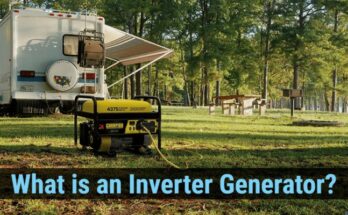A power outage can disrupt your daily life, especially if it stays for an extended period. The majority of power outages will be sorted out in a few hours, but when it stays for a few days, you must have a backup generator to keep you comfortable.
A backup generator has many benefits; it keeps your essential appliances running, prevents the food from spoiling, and provides a sense of safety to you and your family.
Now, if you have a generator, you should know how to safely use it and maintain it properly. A generator can be a great power option during a blackout, but how long can you run it continuously without damaging it? Or can you run it overnight without any problems?
The answer is yes, but there are few things that you will need to consider before you let your generator run overnight.
So, what are those things, and what do you need to keep in mind before letting your generator run continuously? Let’s see.
Table of Contents
For How Long Can You Run a Generator Continuously?
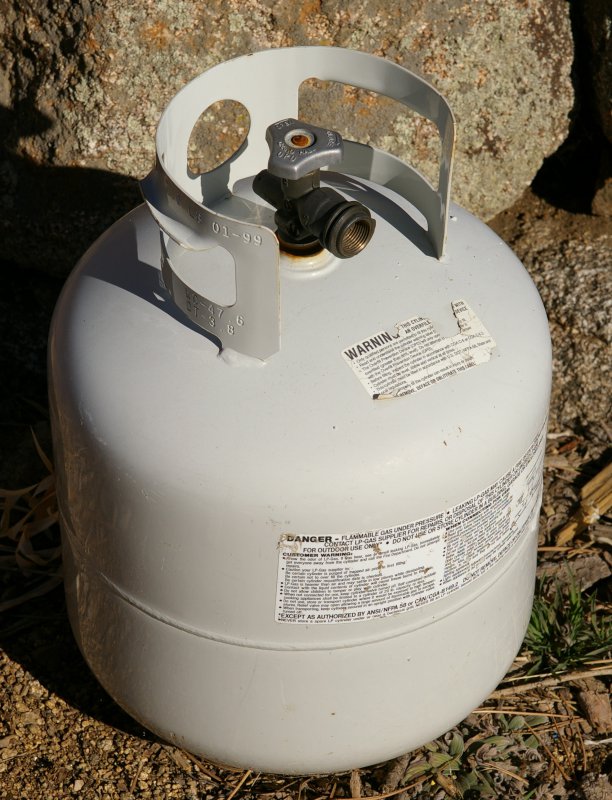
The continuous runtime of a generator will depend on many factors. A properly maintained generator will be limited by its fuel tank capacity; it will need to be refueled periodically.
To do that generator will need to be stopped. If refueling isn’t the problem, then also you can’t keep it running for as long as you like. It has mechanical parts that need rest; otherwise, the generator’s lifespan will decrease due to increased stress on its components.
Now, let’s consider a gasoline generator. A gasoline generator can run continuously as long as the fuel tank has fuel in it. You can expect a continuous runtime from anywhere between 6 to 12 hours.
This runtime will depend on how much power you are drawing, the size, and the company of a generator.
When dealing with a gasoline generator, we suggest that you let it cool down for 5 to 10 minutes before refilling it. This is to ensure safety because a small spill or fumes can lead to a fire.
That was for gasoline. Let’s now discuss how long a propane generator can run. For propane generators, there is no fuel tank, so there will be no problem with refueling. But propane generators are directly powered from a propane tank, so the continuous runtime will depend on the size of a propane tank. Propane tanks are available in different sizes.
If you want to increase the runtime, then you can connect two propane tanks to the generator through a stopcock valve. So when one tank gets empty, you can simply twist the valve, and another one will get connected.
So, if we assume that you have unlimited propane tanks to replace the one that gets empty, your generator will run continuously.
That will also depend on the oil level of a generator as after 150 to 200 hours, the generator oil will drop below a threshold limit which triggers the generator to shut off automatically to protect the engine from any kind of damage.
Moreover, you should check your owner’s manual to know for sure how long you can run your generator because there will be a problem of heat generation. If the heat keeps building up, then it can damage your generator permanently.
You won’t have to worry about the heat build-up as long as you don’t run it continuously for 24 hours. So, a propane generator, considering all the limitations, can run for up to 100 hours, only if you can manage the heat build-up.
Will a Generator Run Overnight without Any Problems?
As discussed in the last section, a continuous runtime depends on a fuel tank, size, the load connected, heat build-up in the engine, and the brand of a generator. But a simple answer to this question is yes, and you can run your generator overnight without any major problems.
If a fuel tank is of lower size, then the generator might need refueling in the middle of the night; that is something that you should keep in mind. That’s why it is important to have a generator with a decent tank size.
Let the Generator Cool Down Before Refueling
You need to let the generator cool down before refueling it. You can’t pour in fuel when the generator is running or after it has just stopped working. This is to avoid accidents.
As you know that gasoline is a highly flammable fuel but not in its liquid form. Fumes of gasoline will ignite in an instant when they come in contact with the spark.
So, when the generator runs, the engine gets hot. If you try to refuel the generator without giving it time to cool down, you may put yourself and the people around you in danger. That is why you should never attempt refueling when the generator is still hot or running.
Gas Vs. Propane: Which One Should You Choose?
Gas and propane both are great choices when you want your generator to run for extended periods. So, now the question is which one you should use: a gas or propane generator.
Gas generators
Gas generators are very easy to handle and are also durable. They will last for years if properly maintained. Moreover, gas generators are very efficient and reliable, and gasoline is available almost everywhere.
If you live in a colder area, then gas generators will start and run conveniently without causing any problems. However, you will need to be careful when handling the gasoline as it is highly flammable. Also, it is an expensive fuel, so the operating cost will be higher.
Another thing you need to know is that it creates build-up inside the generator if you leave the gas inside the unit. So before you store it, make sure to empty the tank and the carburetor. Additionally, gasoline has a very low shelf life.
So if you plan to store the gasoline in large quantities, you will need to add the stabilizer simultaneously and also be careful due to its flammable nature.
Propane Generator
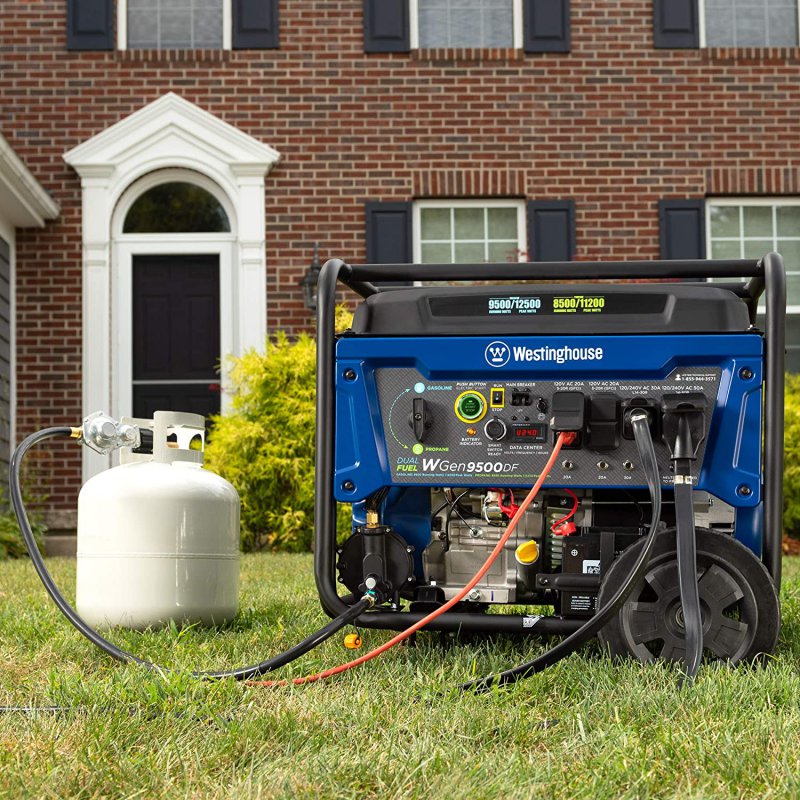
Propane generators are also reliable when it comes to continuous runtime. Other than that, propane is a clean gas, emits very low harmful toxic fumes. Propane generators make very little noise when they run. That is also something that you would like to take into consideration when you plan to run it overnight.
Where you need to be careful with gasoline so that it doesn’t spill, with propane, the possibility of fuel spilling gets eliminated as it comes in cylinders, so it is safer than gasoline to handle.
Other than that, propane will not degrade even after 10 to 12 years; it has a very long shelf life, and you won’t even have to add a stabilizer to it. As we have mentioned, gasoline is a pricey fuel while propane is not. It is available at a reasonable price.
The problem with propane generators is the complexity of their engines, and if it breaks down, then it will be hard to repair it. On top of that, propane is not as efficient as gasoline, and it burns faster. Other than that, propane generators don’t run satisfactorily in colder climates; below 20° F, it is of no use.
Where to Keep the Generator?
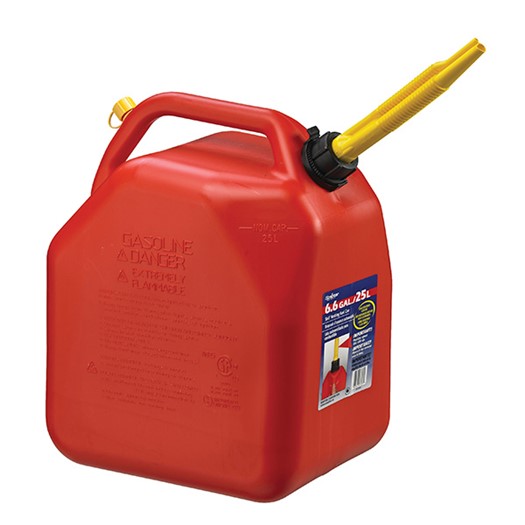
You must finalize a spot to set up your generator when you plan to run it overnight. It is an important step, so you should find a proper place. Just don’t decide to put it on any flat surface. Also, it shouldn’t be placed inside a confined space since there is a possibility of accumulation of fumes which can be dangerous.
When you decide on a spot, make sure it is near the fuse box, as it will be easy to make a connection to the house. We suggest having some open shelter beside the fusebox and not in the front. A shelter will keep the generator safe from the snow and rain.
We said that you need to choose a flat surface. This is because you can’t place a generator on a tilted surface. It can create some dangerous problems.
When the generator stays tilted, the gasoline in the fuel tank will accumulate on one side, and if a fuel sensor shows that the gas tank is fuel when it actually is not, then the generator will keep running. This may even damage the engine permanently.
Other than that, you should keep it at a distance considering the noise level. At some places, there will be laws on where you can put your generator and where you can’t. So, check the laws before setting up your generator.
Securing the Generator
A generator that powers the whole house overnight needs to be secured. It should have enough fuel and should be properly maintained.
What we mean by its security is that it should be chained using a high-quality chain and a padlock. A generator is an expensive piece of equipment, so it makes an attractive invitation to thieves. You can also install a camera to record the generator. Moreover, it should be quiet, and if it has wheels, then it should also be locked.
Other than that, don’t place your generator in such a way that power cords lie down in the middle of a pathway. It increases the risk of someone tripping over it or sockets getting damaged if it gets accidentally pulled. So, it should be away from the walking lane. A better solution is to lay them underground inside a conduit.
You may not know when your generator will run out of fuel or oil, so always have a stored oil and fuel for emergency use. Moreover, keep your generator properly maintained. In addition, a generator emits carbon monoxide, which is odorless and colorless, so to be safe from it, you should install CO detectors.
Things to Consider Before You Leave Your Generator Running Overnight
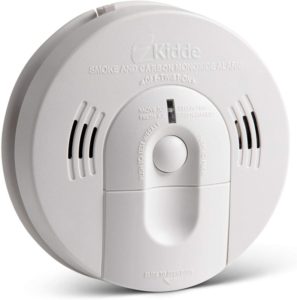
Safety is of paramount importance when you leave a generator outside. Here are some additional things that you will need to keep in mind.
A generator, as mentioned, emits carbon dioxide. For its detection, people install CO detectors. An accumulation of it can be deadly. So, you should have these detectors in every sleeping area and in living rooms as well.
Also, make sure that they have backup battery power when the electricity goes out. To ensure that they are running properly, you should inspect them regularly.
You should have a generator with all the needed safety features. If not more, it should have at least some basic safety features like a spark arrestor, low fuel, and oil shutdown, etc.
A generator is a noisy device, so at night to get a peaceful sleep, you will need to address this issue. It not only disturbs you, but high noise also disturbs your neighbors. So, you should buy a low noise generator or use a muffler to reduce the noise level.
Conclusion
A generator is a great solution to your power needs. But you can’t keep them running for extended periods. They need a break. If you keep them running continuously, then they will eventually break down and get damaged permanently.
But, if you maintain them properly and follow all the safety precautions, then it will run as long as you like it too.
So, follow all the guidelines and carefully set up your generator. Moreover, read the instructions provided in the owner’s manual. All these things will make sure that your generator will be ready to roar when the time comes.

